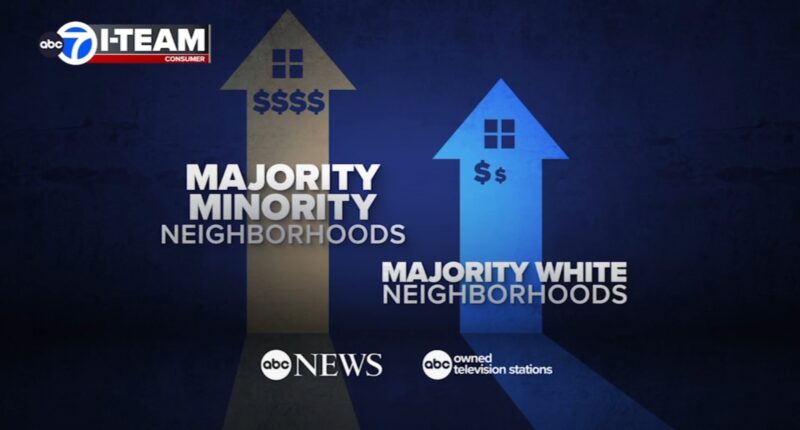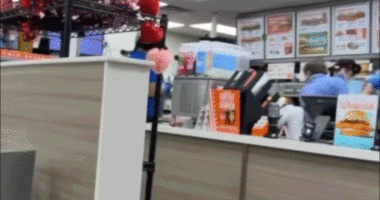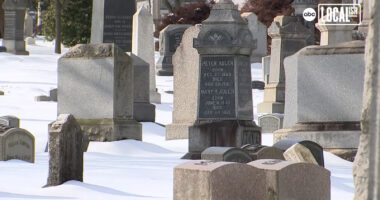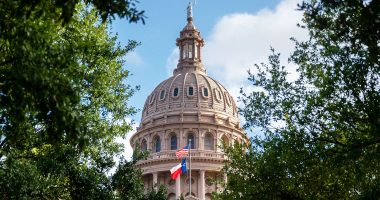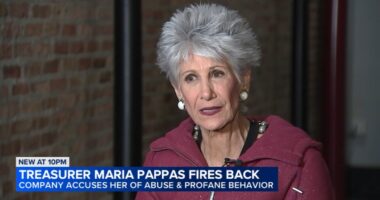Share this @internewscast.com
CHICAGO (WLS) — Reports from ABC News, ABC-Owned Television Stations, and the ABC7 Chicago I-Team indicate that a disproportionate number of Black and Latino homeowners are experiencing what’s known as “highballing.”
These homeowners often face higher property taxes due to the assessment of their homes at relatively elevated values and, in some cases, because of higher tax rates in their areas.
But in Cook County, Illinois, a new study says the problem is starting to improve.
Twila Hayes says her family home in the south suburbs of Chicago is slipping away.
READ MORE | ‘Highballed’: How low income, communities of color are overtaxed in New York City
“Oh, I was stunned. I thought it was outrageous,” Hayes said.
This issue became evident with a significant reassessment in Cook County, where one homeowner discovered her property’s value had skyrocketed from $116,000 to $240,000, leading her tax bill to more than double, exceeding $12,000 annually.
“It’s absolutely a nightmare,” Hayes said.
Hayes’ property tax bill, which gets paid from her mortgage escrow, meant an increase to her mortgage payment.
“I was paying $950 a month. And then, it went to $2,304 a month,” Hayes said.
An analysis by ABC News revealed that across the nation, homeowners in predominantly minority neighborhoods disproportionately pay higher property taxes relative to their home’s value compared to those in majority-white neighborhoods.
The I-Team discovered that in Cook County, over 11,000 properties in the southern suburbs experienced a doubling or more in property tax assessments during the latest assessment. In contrast, the latest assessment for the northern suburbs showed a mere 0.2% of properties doubling in assessed value. Within Chicago, more than 12,000 properties saw their assessed values more than double across the last two assessment cycles, primarily on the city’s South and West sides.
“They are creating urban deserts where people have to leave their homes,” Hayes said.
The I-Team first reported in 2024 about how higher assessments can hurt people in Chicago’s south and southwest suburbs more.
This occurs because Illinois relies significantly on municipalities to fund schools compared to most other states. Consequently, the southern and southwestern suburbs encounter higher property tax rates, mainly to support schools. On the other hand, the northern suburbs benefit from lower property tax rates due to higher-valued properties, a greater business presence, and more abundant wealth.
“We tend to see then, African American and Latino communities are paying higher tax rates,” said University of Chicago Professor Christopher Berry
READ MORE | South suburban homeowners say property tax assessments raised up to 650%: ‘I will probably move’
Berry studies public policy and urban innovation. His recent study helped expose the problem of people of color too being “highballed” by assessors across the nation.
Click here for Berry’s notes on Cook County.
“Lower-value homes are systematically over assessed, the assessor says that lower valued homes are worth more than they are, whereas for high value add homes, the assessor says they’re worth less than they are,” Berry said. “For a long time, Cook County was one of the worst offenders. They’ve made substantial improvements in the assessor’s office over the last few years, and these problems have been substantially reduced.”
So, what is Cook County Assessor Fritz Kaegi doing differently? The I-Team asked him.
“And what we did is we took dead aim at this problem. We brought in data scientists who used a different kind of model that didn’t build in those kinds of biases that plague areas like ours across the country,” Kaegi said.
That meant no more lumping together vastly different neighborhoods and taking a closer look at specific locations.
“So, if you’re averaging homes in sales prices of homes in Woodlawn with the sales prices of homes in Hyde Park, where homes are more highly valued, you may end up over assessing the homes,” Kaegi said.
However, the University of Chicago study does not say assessments are necessarily lower, just more accurate, when compared to sales of homes.
“I mean, how, where am I going to get all this money to continue to pay?” Hayes said.
Hayes did get a small reduction on her assessment when she appealed, but it is still not enough.
“And if we are off on our assessment on homes like Twila’s, we’re ready to listen. We walk humbly and we’ll take it into account in our assessment,” Kaegi said.
“You’ll look again?” asked ABC7 Chicago I-Team Consumer Investigator Jason Knowles.
“We absolutely will. We’re happy to do it,” Kaegi responded.
The I-Team also sent Hayes’ documents to the Board of Review and the state’s property tax appeal board to see what else can be done.
Kaegi is also supporting a proposed state bill which would provide state funding to help struggling homeowners in Cook County who have seen property tax bills spike by 25% or more.
Kaegi also pointed to a study from the Cook County Treasurer’s Office, showing that businesses appeal more, and they win more appeals, shifting the tax burden to the homeowner. Kaegi says the Board of Review, not his office, is granting most of those business appeals. But businesses may have more resources to fight and win when there is an overassessment.
Copyright © 2025 WLS-TV. All Rights Reserved.
